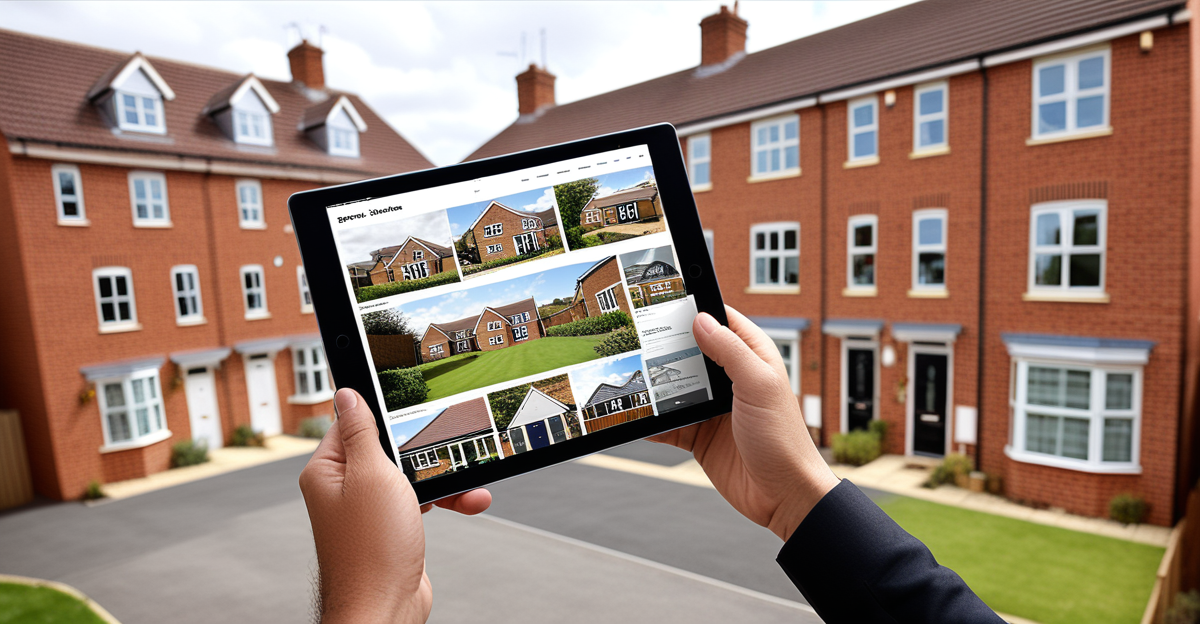Impact of Emerging Technologies on UK Real Estate Investment
Emerging technologies are revolutionizing the UK real estate sector by driving property investment innovation and reshaping market dynamics. Key technologies such as artificial intelligence, blockchain, and the Internet of Things (IoT) are enabling deeper data insights and streamlined processes. This transformation is vital for investors aiming to enhance returns and manage risks effectively.
Early adoption trends indicate a growing appetite among UK investors for leveraging real estate technology trends. For instance, AI-driven analytics are becoming fundamental in evaluating property performance, while blockchain is enhancing transparency in transactions. Such innovations reduce uncertainties traditionally associated with property investments.
In parallel : Why Are Luxury Real Estate Investments in the UK on the Rise?
The significance of technological transformation cannot be overstated: it offers a competitive edge by improving decision-making speed and accuracy. Industry shifts include integrating automated property management systems and adopting smart building features, reflecting a trend towards efficiency and sustainability. As UK real estate embraces these emerging technologies, property investment innovation stands to benefit from increased agility, transparency, and operational efficiency, marking a new era for the sector.
Impact of Emerging Technologies on UK Real Estate Investment
Emerging technologies are fundamentally reshaping UK real estate by driving property investment innovation. Key advancements such as artificial intelligence, blockchain, and the Internet of Things (IoT) are transforming traditional practices, significantly improving transparency, efficiency, and decision-making in property investment.
Have you seen this : What Are the Essential Qualities to Look for in a UK Real Estate Agent?
Technological transformation is crucial for staying competitive in the evolving market. Early adopters of real estate technology trends benefit from enhanced data accuracy, streamlined transactions, and smarter asset management. For example, AI-powered tools provide better property valuations, while blockchain offers secure, transparent records of ownership.
Market shifts indicate growing appetite for innovation among investors and developers. Firms embracing these emerging technologies can reduce risks and optimize asset performance. This shift also encourages collaboration between tech companies and real estate professionals, accelerating the pace of innovation in the UK market.
In summary, the rise of emerging technologies in UK real estate unlocks new opportunities and challenges, marking a pivotal change in how property investment is approached. Recognizing and adapting to these trends is essential for investors aiming for long-term success.
Artificial Intelligence and Data Analytics in Investment Decisions
Artificial Intelligence (AI) and data-driven decision-making are transforming UK real estate by enhancing property valuation and investment risk assessment. AI in real estate uses machine learning algorithms to analyze vast property data analytics swiftly, identifying market patterns and predicting price movements with high precision. This allows investors to make informed choices based on comprehensive, real-time insights rather than limited traditional indicators.
Predictive analytics plays a crucial role in spotting lucrative investment opportunities before they become widely recognized. For example, UK firms employ AI models to evaluate demographic shifts and economic factors that directly influence property values, enabling early entry into promising markets. These technologies reduce human error and improve forecasting accuracy, supporting more confident investment strategies.
Real-world examples include property investment innovation platforms that integrate AI-powered tools to streamline portfolio management. Such systems automatically assess risk by comparing historical data and market trends, significantly reducing uncertainty. This integration of AI and property data analytics is a key driver behind recent real estate technology trends, propelling the sector toward greater efficiency and improved financial outcomes.
Artificial Intelligence and Data Analytics in Investment Decisions
AI in real estate is revolutionizing property investment innovation by enabling precise valuation and comprehensive investment risk assessment. Through data-driven decision-making, machine learning algorithms analyze vast datasets, spotting trends that human analysts might miss. This dramatically improves accuracy in UK real estate valuations and forecasts property market shifts more reliably.
Predictive analytics helps investors identify promising opportunities before competitors. By assessing factors like location trends, economic indicators, and tenant demographics, AI models generate actionable insights that guide strategic investments. Early adopters report enhanced portfolio performance due to quicker, data-backed choices.
Real-world examples include UK firms integrating sophisticated property data analytics platforms for enhanced due diligence. These systems not only streamline risk analysis but also optimize asset management by forecasting maintenance needs and tenant churn rates. Consequently, AI adoption is increasing among property investors seeking a competitive edge, firmly positioning AI in real estate as a cornerstone of modern investment strategies.
By fusing innovative technology with traditional expertise, AI drives smarter, faster, and more informed decisions, truly transforming the UK property investment landscape.
Blockchain and Smart Contracts Streamlining Transactions
Blockchain real estate technology is revolutionizing property investment innovation by enhancing transaction transparency and security in the UK real estate market. It creates immutable, tamper-proof records that significantly reduce fraud risks in property deals. Blockchain’s decentralized ledger ensures all parties access the same verified information, fostering trust and efficiency in transactions.
Smart contracts automate many transactional processes by executing agreements automatically when predefined conditions are met. This reduces reliance on intermediaries and accelerates closing times, resulting in cost savings for investors. For example, smart contracts can handle escrow releases or automatically update ownership records once payments are confirmed.
Pilot programmes in the UK have demonstrated blockchain’s practical applications, such as tokenizing property assets to enable fractional ownership and streamline complex deals. Early adopters of these real estate technology trends are gaining competitive advantages by enhancing accuracy and cutting transaction delays.
Overall, blockchain real estate and smart contracts form a foundational layer driving transparency and speed in property transactions. Their increasing integration signals broader adoption trends, reshaping how UK real estate investment operates and improving market confidence.
Blockchain and Smart Contracts Streamlining Transactions
Blockchain real estate technology significantly enhances property transaction innovation by increasing transparency and reducing fraud risks. This distributed ledger system records every transaction securely and immutably, making ownership history easily verifiable. As a result, investors gain confidence in transaction accuracy and legitimacy, supporting smoother deals within the UK real estate market.
Smart contracts automate transaction workflows by executing terms once predefined conditions are met. For example, contractual payments or title transfers occur instantly when milestones are reached, eliminating manual delays and costly intermediaries. This automation not only speeds up closings but also cuts administrative expenses, boosting overall efficiency.
Practical applications in the UK include pilot programs where blockchain tracks property titles and rental agreements, simplifying due diligence. These projects demonstrate how blockchain real estate solutions reduce paperwork while enhancing security. Early adopters see tangible benefits in transaction speed and error reduction, illustrating the transformative potential of this emerging technology.
In summary, blockchain combined with smart contracts is revolutionizing secure transactions and property investment innovation, setting new standards for reliability, efficiency, and trust in the UK real estate sector.
Impact of Emerging Technologies on UK Real Estate Investment
Emerging technologies are fundamentally reshaping UK real estate through innovative tools driving property investment innovation. Core technologies like artificial intelligence, blockchain, and the Internet of Things have become instrumental in modernizing market practices. Their integration not only streamlines processes but also boosts transparency and accuracy in decision-making.
Technological transformation is crucial for investors seeking competitive advantages. It enables enhanced data-driven insights and operational efficiencies, which are indispensable in today’s dynamic market. Early adoption of these real estate technology trends shows a clear pattern: investors leveraging technology reduce risks and accelerate transactions.
Notable industry shifts include the rise of automated property management systems and smart building technologies that improve asset performance. Additionally, blockchain’s immutable ledgers enhance trust in property transactions, while AI-driven analytics refine valuation and risk assessments. These technologies collectively push UK real estate toward greater agility and sustainability, reflecting a broader strategic move to future-proof investments in an increasingly digital environment.
Impact of Emerging Technologies on UK Real Estate Investment
Emerging technologies are transforming UK real estate by driving significant property investment innovation. Among the primary technologies reshaping the sector are artificial intelligence, blockchain, and the Internet of Things (IoT). These tools enhance data accuracy, operational efficiency, and transparency—key factors for modern investors.
Technological transformation is crucial for maintaining a competitive edge. Investors adopting these advancements benefit from more precise analytics and streamlined processes, reducing both risk and operational costs. Early market trends show growing uptake of real estate technology trends, with AI-powered platforms and blockchain systems gaining rapid traction.
Industry shifts include integrating smart building technologies through IoT, automating contract execution via blockchain-enabled smart contracts, and leveraging AI for predictive analytics. This convergence fosters more dynamic decision-making and accelerates innovation in property management and investment strategy.
The increasing collaboration between traditional real estate stakeholders and tech developers highlights the sector’s commitment to embracing these emerging technologies. This approach not only optimizes asset performance but also positions UK real estate at the forefront of a global innovation wave.
Impact of Emerging Technologies on UK Real Estate Investment
Emerging technologies are profoundly influencing UK real estate, driving significant property investment innovation. Key advancements—such as artificial intelligence, blockchain, and the Internet of Things—are at the forefront of these changes, fundamentally reshaping market dynamics and investor behavior. These technologies enable enhanced data accuracy, operational efficiency, and transparency, which are crucial for navigating today’s complex property market.
The importance of technological transformation lies in its ability to streamline processes and improve decision-making speed. Investors leveraging these tools can better assess risk and identify opportunities, gaining a competitive edge. Early adoption trends reveal increasing enthusiasm among UK property investors, who are incorporating real estate technology trends into their strategies to optimize asset management and transaction workflows.
Notable industry shifts include smarter, AI-powered analytics guiding valuation and investment decisions and blockchain-based platforms ensuring more secure and transparent transactions. Coupled with IoT implementations in smart buildings that improve asset performance, these developments signal a broader market shift toward digitization. Collectively, emerging technologies are accelerating the evolution of UK real estate investment, fostering a more agile and innovative marketplace.
Impact of Emerging Technologies on UK Real Estate Investment
Emerging technologies such as AI, blockchain, and the Internet of Things are driving profound changes in the UK real estate sector. At the core of this transformation is property investment innovation, which integrates sophisticated tools to enhance data accuracy and operational efficiency. Technological transformation is essential for investors aiming to improve decision-making speed and reduce risks in a competitive market.
Early market adoption trends reflect increasing acceptance of these real estate technology trends. For example, firms leveraging AI-powered analytics achieve more precise valuations, while blockchain adoption ensures transparent and secure transactions. Meanwhile, IoT-enabled smart buildings contribute to better asset management and tenant satisfaction.
Notable industry shifts include the automation of property management processes and the rise of collaborative ecosystems between tech startups and traditional real estate firms. These developments indicate a strategic move toward digitization and sustainability, optimizing investment portfolios and setting new standards across the sector. Consequently, emerging technologies are not only modernizing UK real estate but also fundamentally reshaping how property investment innovation is pursued and executed.
Impact of Emerging Technologies on UK Real Estate Investment
Emerging technologies are transforming UK real estate by driving significant property investment innovation across multiple fronts. Key technologies include artificial intelligence, blockchain, and the Internet of Things, each contributing to improved data accuracy, operational efficiency, and transaction transparency.
Technological transformation is essential for investors seeking to enhance decision-making and reduce risks. Advancements such as AI-powered analytics allow for more precise property valuations and market forecasting, while blockchain ensures secure, immutable transaction records that minimize fraud. The IoT adds value through real-time asset monitoring and smart building functionalities, further boosting investment potential.
Early market adoption trends indicate rapid uptake of these real estate technology trends. Increasing numbers of firms integrate AI-driven tools for portfolio management alongside blockchain-based systems that streamline contract execution. This shift reflects a broader industry move toward automation, transparency, and sustainability.
Notable industry shifts focus on collaborative efforts between property developers and technology providers, accelerating innovation deployment. Together, these technologies enable more agile investment strategies, promising enhanced returns and positioning UK real estate at the forefront of global property investment innovation.
Impact of Emerging Technologies on UK Real Estate Investment
The UK real estate sector is experiencing rapid transformation driven by key emerging technologies like artificial intelligence, blockchain, and the Internet of Things (IoT). These technologies underpin property investment innovation, offering enhanced data accuracy and operational efficiency. Technological transformation is increasingly vital for investors seeking to optimize returns and manage risks in a competitive landscape.
Early market adoption of real estate technology trends indicates growing confidence among investors. AI-driven platforms enhance valuation and investment risk assessment by processing vast property data sets more swiftly and accurately than traditional methods. Blockchain real estate solutions improve transparency and reduce fraud, streamlining property transactions with secure, immutable records. Meanwhile, IoT adoption introduces smart building capabilities and remote asset monitoring that increase operational efficiency.
Notable industry shifts include the integration of AI for predictive analytics and blockchain-enabled smart contracts that automate complex transactions. These innovations not only accelerate workflows but also foster a collaborative ecosystem between proptech startups and traditional firms. Overall, the embrace of emerging technologies is reshaping UK real estate, marking a crucial evolution in how property investment innovation is pursued.
Impact of Emerging Technologies on UK Real Estate Investment
Emerging technologies such as artificial intelligence, blockchain, and the Internet of Things are driving substantial transformation in UK real estate, fundamentally reshaping property investment innovation. These technologies provide enhanced data accuracy, operational efficiency, and transparency, which are essential for modern investors navigating complex markets.
The importance of technological transformation lies in its ability to streamline processes, reduce risks, and improve decision-making speed. Early market adoption trends demonstrate a growing embrace of real estate technology trends. Investors now rely on AI to generate predictive analytics that uncover investment opportunities, while blockchain real estate solutions secure transaction integrity and enable automation via smart contracts.
Notable industry shifts include increased use of IoT-enabled smart buildings that boost asset performance and tenant satisfaction. Additionally, collaboration between traditional property firms and technology providers is accelerating innovation deployment across the sector. These developments reflect a strategic move toward digitization, making UK property investment more agile and sustainable.
Together, these emerging technologies reinforce the evolving landscape of UK real estate, offering sophisticated tools that empower investors to optimize portfolios and stay competitive in an increasingly tech-driven market.









